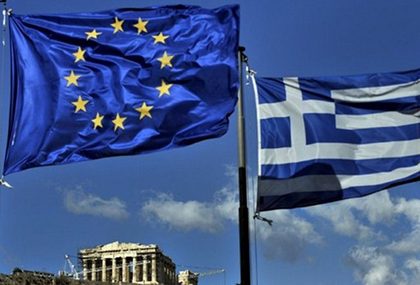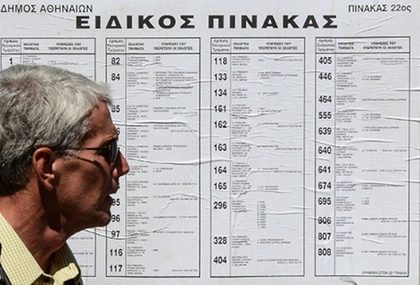SUMMARY
This is AI generated summarization, which may have errors. For context, always refer to the full article.

ATHENS, Greece – As Greeks take to the polls on Sunday, June 17, in an election battle that could decide their future in the euro, the inability of warring political parties to find common ground suggests fresh turmoil ahead.
The main contenders — the New Democracy conservatives and the Syriza leftist radicals — have each pledged to form a government that will renegotiate the harsh conditions of Greece’s EU-IMF bailout, but want to do so on their own terms.
The problem is that according to the last opinion polls published earlier this month, neither party will be able to govern without allies, and the forging of even a shaky coalition government is far from guaranteed, analysts said.
“If New Democracy is the first party, the possibility of having a coalition government is a little easier than if the first party is Syriza,” said Vassiliki Georgiadou, a political science lecturer at Panteion University in Athens.
“But both scenarios are not very easy,” she said.
She said a coalition should ideally involve three parties to be stable, with the socialists Pasok and the Democratic Left seen as the potential kingmakers.
“It has to be legitimized by a broad majority of the citizens,” she said.
Any government will face a virtually impossible balancing act between public clamor for an easing of the austerity imposed in the last two years and the insistence by EU-IMF creditors that Greece must stick to the plan.

Greece has already been forced to seek bailouts twice, first for 110 billion euros in 2010 and then for 130 billion euros this year plus a 107-billion-euro private debt write-off — a total of 347 billion euros ($439 billion).
Syriza’s 31-year-old leader Alexis Tsipras has pledged to tear up the bailout deal and has already refused to cooperate with New Democracy or Pasok, who have taken turns running the country for the last four decades.
Tsipras has accused both political forces of throwing a “corruption party” in their years in power and has pledged to end a “rotten system.”
His elder rival Antonis Samaras, 61, has sneered at Syriza’s promises to restore wages and salaries as “comic book economics”.
“Both the public, and common logic, demand that a government be formed. It can go on no longer,” New Democracy chief Samaras said earlier.
Nikos Xydakis, a columnist for the Kathimerini daily, said: “No government of political parties made up of the same old people carrying the burden of the same old sins is capable of shouldering this historical burden.
“It will collapse under the weight,” he said.
The prospect of deadlock or a government with only a weak majority is one that is worrying international markets as they nervously watch the election.
“Even if a New Democracy-led coalition government is inaugurated in time and agrees in principle to the conditions, the Troika (EU, IMF, ECB) cannot afford agreeing on a big amendment,” analysts from Citi bank said in a note.
“We continue to expect a much higher probability — 50 to 75 percent — of Grexit (Greece leaving the eurozone) in the next year or two. If elections result in a Syriza-led government, we believe the break is likely to happen sooner,” the note said.
The likelihood of yet another election, after the inconclusive vote on May 6 failed to produce a coalition, is seen as unlikely however.
“Whoever is responsible for blocking the formation of a government would be rejected by public opinion,” said political analyst George Sefertzis.
“At worse, a government of national unity could be a solution,” he said.
This scenario has been put forward by Pasok but is seen as improbable by most other analysts like Georgiadou who said the chances of this were “weak”.
Meanwhile the country is running out of money, according to recent local news reports, with enough reserves to last only until July 20, and the release of fresh instalments from the EU-IMF package suspended until after the elections.
European leaders are likely to demand assurances from all parties including Syriza to continue the rescue, said an official close to the previous government of Prime Minister Lucas Papademos, a former European Central Bank deputy chief.
“The Europeans will ask for the signature of all the parties, including Tsipras, even if he is not in charge of the government,” the official told AFP.
The official said Greece could “probably obtain” from its creditors a two-year extension on its deficit-reduction deadline to 2016 instead of 2014. – Agence France-Presse
Add a comment
How does this make you feel?
There are no comments yet. Add your comment to start the conversation.